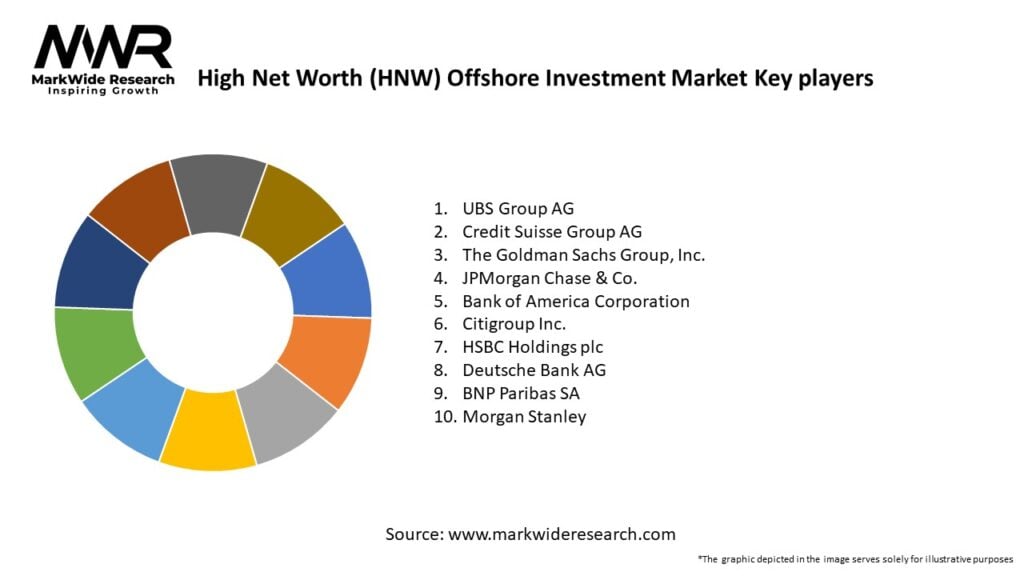Just How Offshore Financial Investment Functions: A Step-by-Step Malfunction for Financiers
Offshore financial investment presents a structured path for investors looking for to maximize their economic strategies while leveraging global opportunities. The process starts with the mindful selection of a jurisdiction that aligns with a financier's goals, followed by the establishment of an account with a legitimate offshore establishment.

Recognizing Offshore Financial Investment
Comprehending overseas investment involves identifying the critical benefits it uses to firms and people looking for to enhance their monetary portfolios. Offshore investments normally describe assets kept in an international jurisdiction, often characterized by favorable tax obligation routines, regulatory environments, and privacy defenses. The main purpose behind such investments is to boost funding threat, development, and diversification management.

Investors can access a large range of financial instruments with offshore locations, consisting of stocks, bonds, mutual funds, and realty. These investments are usually structured to abide by local regulations while giving versatility in regards to property allotment. Additionally, offshore investment techniques can make it possible for businesses and individuals to hedge against domestic market volatility and geopolitical threats.
Another trick aspect of offshore investment is the capacity for boosted privacy. A detailed understanding of both the commitments and benefits connected with offshore financial investments is essential for informed decision-making.
Benefits of Offshore Investing
Capitalists frequently turn to offshore investing for its countless advantages, consisting of tax effectiveness, possession protection, and profile diversification. One of the primary advantages is the possibility for tax optimization. Several offshore territories supply favorable tax regimens, allowing investors to lawfully minimize their tax liabilities and take full advantage of returns on their financial investments.
Additionally, overseas accounts can give a layer of asset security. Offshore Investment. By placing properties in politically secure territories with strong privacy legislations, capitalists can protect their wide range from prospective legal cases, financial institutions, or financial instability in their home countries. This form of defense is especially attracting high-net-worth people and business owners dealing with litigation threats
Furthermore, overseas investing facilitates profile diversification. Accessing global markets allows financiers to explore chances in various possession courses, consisting of realty, supplies, and bonds, which might not be offered locally. This diversification can decrease total portfolio danger and improve possible returns.
Ultimately, the benefits of offshore investing are engaging for those seeking to optimize their economic approaches. It is crucial for financiers to completely understand the laws and effects linked with overseas financial investments to ensure conformity and accomplish their monetary objectives.
Choosing the Right Territory
Choosing the appropriate territory for overseas investing is an important choice that can dramatically affect an investor's monetary approach. The appropriate jurisdiction can give different benefits, consisting of favorable tax frameworks, property protection legislations, and governing settings that line up with a capitalist's objectives.
When picking a territory, take into consideration variables such as the political stability and financial wellness of the nation, as these aspects can affect investment security and returns. The lawful structure surrounding international investments need to be evaluated to ensure conformity and security of possessions. Countries known for robust legal systems and openness, like Singapore or Switzerland, usually impart better self-confidence among financiers.
Additionally, assess the tax implications of the territory. Some countries provide eye-catching tax obligation motivations, while others may enforce strict reporting needs. Understanding these nuances can aid in optimizing tax obligations.

Steps to Establish Up an Offshore Account
Establishing an overseas account involves a collection of systematic steps that make sure conformity and safety and security. The primary step is choosing a reputable offshore monetary organization, which ought to be certified and controlled in its jurisdiction. Conduct thorough research study to evaluate the institution's reputation, services provided, and customer reviews.
Following, collect the necessary documentation, which commonly includes identification, proof of address, and info regarding the resource of funds. Different territories may have varying needs, so it is critical to verify what is required.
Once the documentation is prepared, initiate the application process. This may entail filling out kinds online or personally, depending upon the institution's methods. Be planned for a due persistance process where the bank will confirm your identity and analyze any kind of possible risks related to your account.
After authorization, you will get your account information, enabling you to fund your overseas account. It is recommended to preserve clear documents of all deals and comply with tax regulations in your house country. Developing the account properly establishes the foundation for efficient overseas investment monitoring in the future.
Managing and Checking Your Investments
Once an overseas account is efficiently set up, the focus shifts to handling and monitoring your investments effectively. This important stage includes a systematic method to guarantee your possessions line up with your monetary goals and take the chance of resistance.
Begin by developing a clear financial investment strategy that outlines your purposes, whether they are prime conservation, revenue generation, or growth. Routinely evaluate your profile's performance versus these standards to assess whether adjustments are required. Making use of monetary administration devices and platforms can promote real-time tracking of your financial investments, offering understandings right into market patterns and asset allocation.
Engaging with get more your offshore monetary visit here expert is crucial. They can supply proficiency and advice, assisting you browse complex governing environments and global markets. Schedule regular reviews to go over efficiency, analyze market conditions, and rectify your technique as needed.
In addition, remain informed concerning geopolitical developments and economic signs that may affect your financial investments. This positive strategy allows you to react immediately to changing scenarios, ensuring your offshore portfolio remains durable and aligned with your financial investment goals. Eventually, diligent administration and recurring tracking are crucial for taking full advantage of the advantages of your offshore investment strategy.
Conclusion
To conclude, offshore investment uses a critical opportunity for profile diversity and danger monitoring. By engaging and picking a suitable territory with reputable banks, investors can navigate the intricacies of international markets successfully. The systematic approach outlined guarantees that financiers are fully equipped to enhance returns while sticking to legal structures. Continued monitoring and partnership with economic advisors continue to be crucial for keeping a nimble investment approach in an ever-evolving international landscape.
Offshore financial investment home offers a structured pathway for financiers seeking to enhance their economic strategies while leveraging global chances.Understanding offshore investment includes identifying the critical advantages it supplies to firms and individuals seeking to enhance their economic portfolios. Offshore financial investments generally refer to possessions held in a foreign territory, frequently characterized by positive tax regimens, governing atmospheres, and privacy protections. Furthermore, offshore financial investment techniques can allow companies and people to hedge versus residential market volatility and geopolitical threats.
